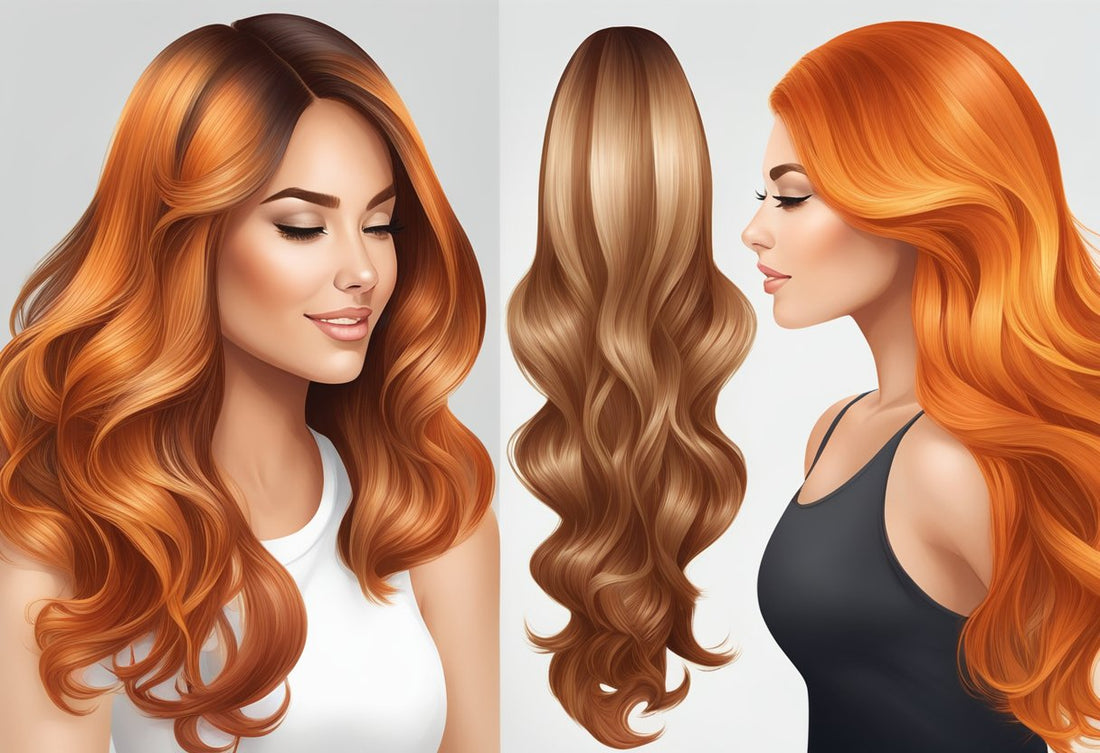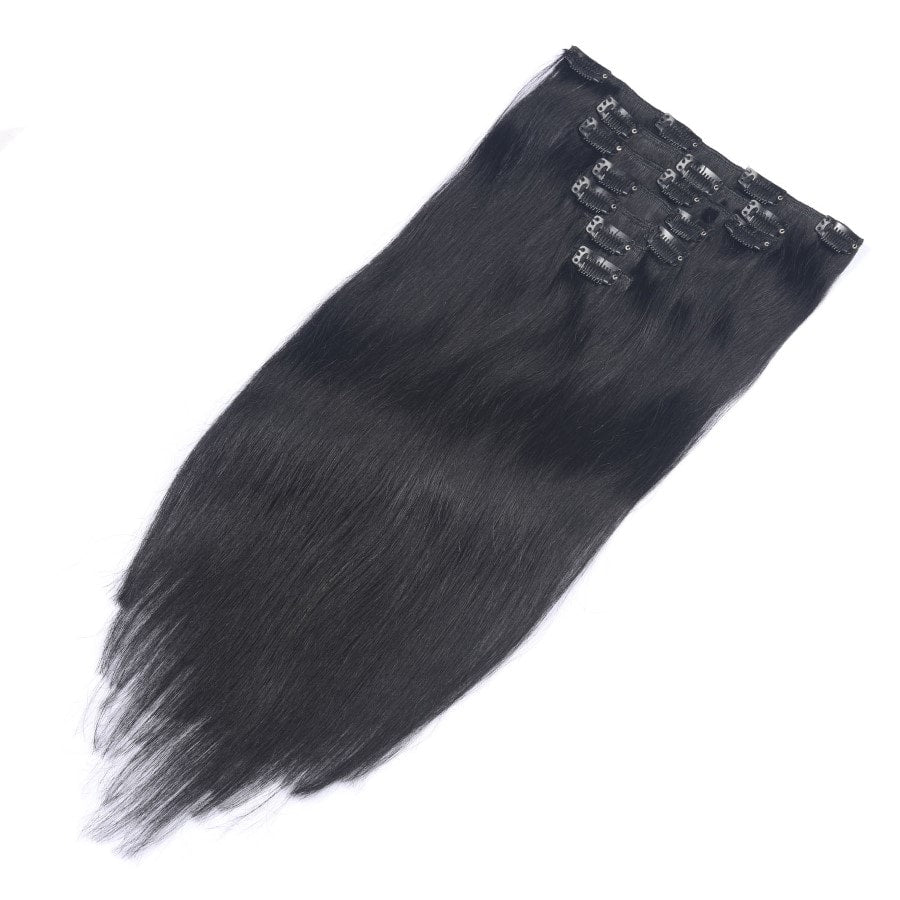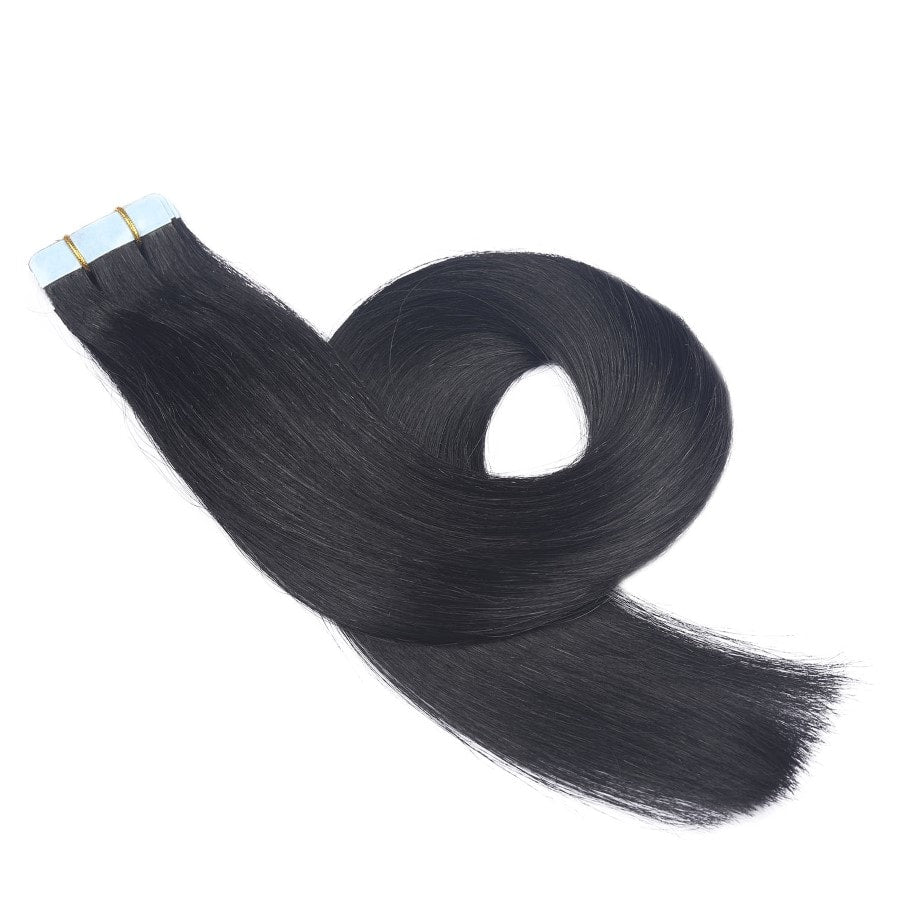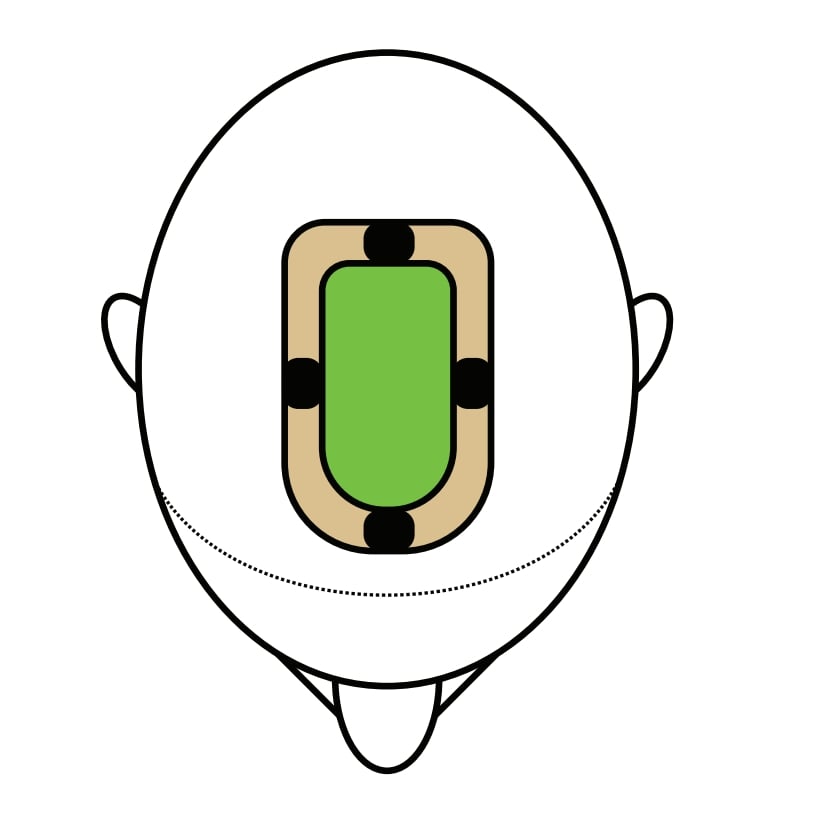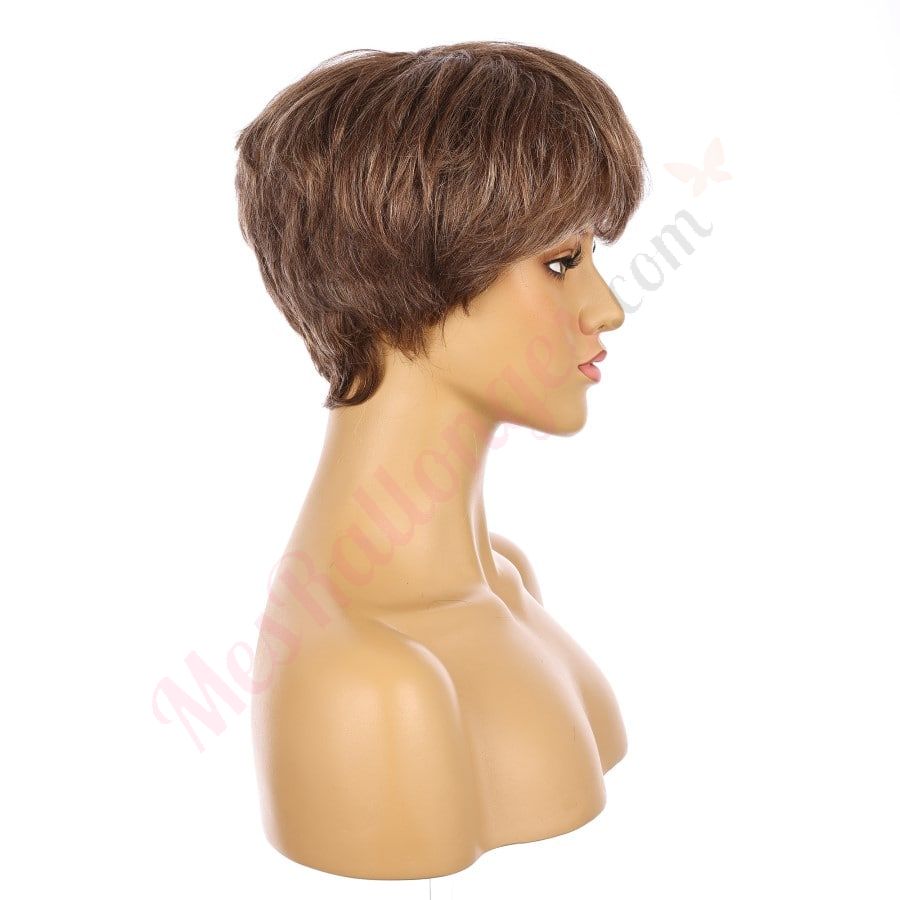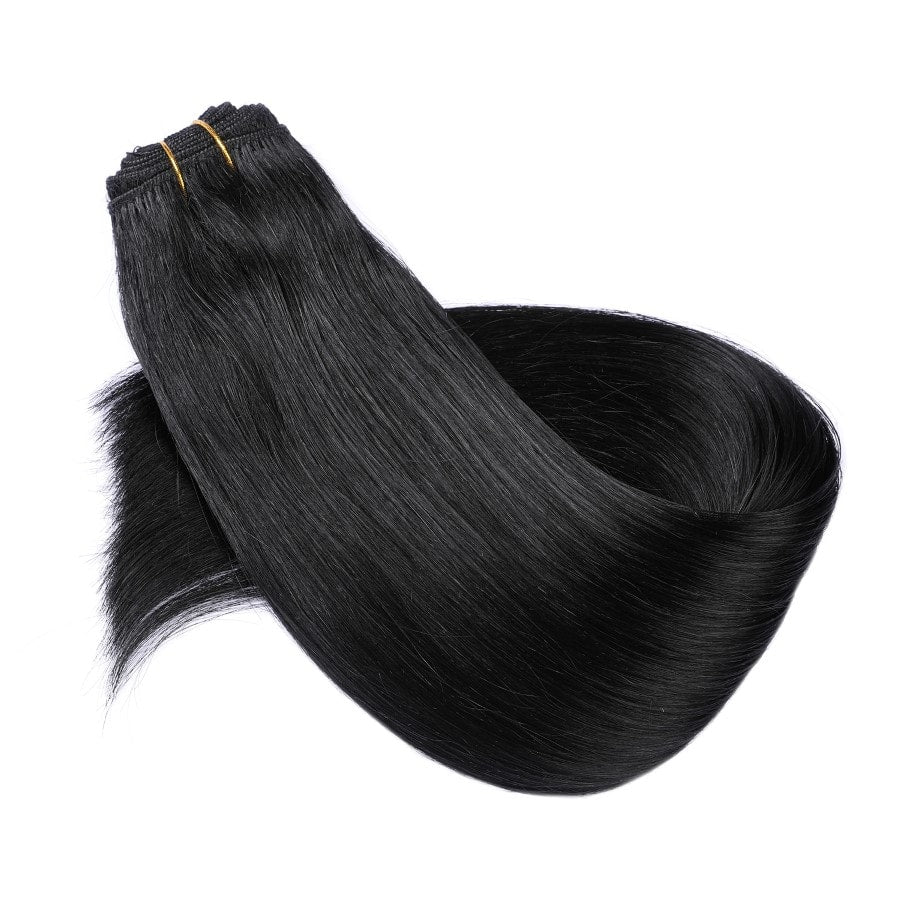We’ve all been there—admiring our gorgeous blonde hair extensions, only to notice them turning an odd orange color. It's frustrating, right? Hair extensions can turn orange due to reactions with chlorine, certain hair products, and even mineral deposits from water. This color change can be alarming, but understanding what causes it can help us tackle the issue head-on.
Blonde extensions, much like our own hair, can undergo a chemical reaction when exposed to harsh elements. Chlorine from swimming pools, certain shampoos, and even the oil from our hands can contribute to this discoloration. When we're on vacation or simply enjoying the summer, our extensions might be at risk. But don’t worry—we’ve got solutions and tricks to keep them looking fresh and vibrant.
By knowing the right preventative measures and home remedies, we can maintain the beautiful color of our extensions. Simple changes in our hair care routine, like wearing a swim cap or using specific shampoos, can make a big difference. Let’s explore how to keep our hair extensions looking salon-fresh every day!
Key Takeaways
- Hair extensions can turn orange due to chlorine, mineral deposits, and certain hair products.
- Preventative measures can keep blonde extensions from discoloring.
- Simple changes in care routines help maintain the vibrant color of extensions.
Understanding Hair Extension Discolouration
Let's explore why our hair extensions might change colour, focusing on specific causes like chemical reactions and the mix of pigments involved.
The Basics of Hair Extension Colour Changes
Hair extensions can change colour for several reasons. Mostly, it's about exposure to different elements. Swimming in pools with chlorine, showering in areas with hard water, and spending too much time in the sun can all mess with our extensions' colour.
Blonde extensions, in particular, are more prone to turning orange. This happens because the pigments in blonde hair are more easily altered by these external factors. Keeping this in mind, it’s crucial to monitor the environment our extensions are exposed to.
Chemical Reactions Leading to Colour Alteration
When we talk about chemical reactions, it's mainly about how our extensions interact with things like chlorine, shampoo, and dyes. For instance, chlorine can strip away the protective silicone coating on extensions, revealing the base pigments underneath. This can lead to unwanted orange or pink hues.
Likewise, using the wrong shampoo, especially those with sulfates or harsh chemicals, can alter the extensions' colour. It's best to stick with professional-grade sulfate-free shampoos and conditioners to maintain the desired shade. These choices help minimize harmful chemical reactions that cause discolouration.
Interplay of Natural and Artificial Pigments
Pigments play a huge role in how our extensions look. Natural hair has an underlying pigment that affects how it responds to dye. For example, blonde hair extensions often have a lot of natural red pigment. When the protective coating wears off, these red pigments can show through more, turning the hair orange.
Extensions are usually treated with dyes to get the desired colour. If these dyes fade, the natural pigments become more visible. This interplay can be tricky, especially with light-coloured extensions like blondes and caramels since they are more likely to show discolouration.
Taking care of our extensions means understanding these pigment interactions and protecting them from elements that accelerate fading. Regular maintenance with the right products can help keep extensions looking vibrant and true to their intended colour.
External Contributors to Orange-Tinged Hair Extensions

Let's dive into the factors that can cause our hair extensions to take on an unwanted orange hue. These factors include sun exposure, water quality, and the use of incorrect hair products. Each of these can contribute to discoloration in different ways.
Effects of Sun Exposure and UV Rays
Sun exposure and UV rays can seriously affect the color of our hair extensions. Prolonged time in the sun can lead to a chemical reaction that strips away pigments, leaving hair with a brassy, orange tint.
We need to be cautious since UV rays break down the natural pigments in hair. Think about summer days at the beach or long hours outdoors.
To protect our extensions, we can wear hats, use hair sunscreens containing ingredients like octocrylene and avobenzone, or limit direct sun exposure. This simple step helps in maintaining the original color of our hair.
The Role of Water: Chlorine and Minerals
Water, especially containing chlorine and minerals, can cause our blonde extensions to turn orange. Swimming pool water is rich in chlorine, which can react with hair pigments leading to discoloration.
Mineral-rich hard water in showers or from sea water also plays a part. These minerals can build up on our hair extensions, altering their color. Fresh water is less problematic but can still contain minerals that contribute to a gradual color change.
Using a clarifying shampoo or a Malibu C treatment can help remove these mineral deposits. Alternatively, installing a water filter in the shower can be a long-term solution to prevent this issue.
Consequences of Using the Wrong Hair Products
Using the wrong hair products can spell disaster for our extensions. Sulfate shampoos can strip the hair of its natural oils and color, leaving it vulnerable to turning orange. Purple or blue shampoos are great alternatives since they neutralize brassy tones.
Regular hair products designed for natural hair sometimes contain ingredients that don’t suit extensions. Heat styling tools and products with strong chemicals should be avoided. They can damage the extensions and cause color changes.
It's essential to use sulfate-free, color-safe shampoos and conditioners. When in doubt, consult our stylist to ensure we're using the best products for maintaining the vibrant color of our hair extensions.
Preventative Measures and Home Remedies
Let's take a closer look at how we can protect our hair extensions from turning orange and keep them looking vibrant and beautiful.
Shielding Hair Extensions from Environmental Damage
Environmental factors like chlorine, saltwater, and sun exposure can cause hair extensions to turn orange. To prevent this, wear a swim cap when swimming and rinse your hair thoroughly with fresh water after exposure to pool or sea water.
Apply hair-safe sunscreen to protect from UV rays, and remember to wear a hat or scarf when spending prolonged time in the sun. Immediate rinsing and conditioning after exposure to these elements can significantly reduce damage and discoloration.
Choosing the Right Hair Care Products
Selecting the right hair care products is crucial. Use purple or blue shampoos to cancel out unwanted orange tones. These work based on color theory and help balance the brassiness in your hair.
Choose sulfate-free and mild shampoos to prevent stripping the hair of its natural oils. Incorporating a deep conditioning mask can provide much-needed moisture and maintain the integrity of the extensions. Regular use of a Malibu C hard water treatment can remove build-up from mineral deposits and prevent discoloration.
DIY Treatments to Counteract Brassiness
If your extensions are already showing signs of brassiness, there are several DIY treatments we can try at home. Purple shampoos are highly effective, simply leave them on for a few minutes longer than usual to enhance their effect.
Creating a DIY mask with a few drops of purple or blue food coloring mixed into your regular conditioner can also help neutralize orange tones. For a more intensive treatment, apply a toner specifically designed to counteract brassiness.
Incorporate these steps into your routine, and you'll keep your hair extensions looking vibrant and fresh!
Salon Solutions and Professional Care

Ensuring the vibrant color of hair extensions requires a combination of targeted treatments, skilled color balancing, and regular upkeep. This section provides specific strategies to keep extensions looking their best.
Treatments to Correct Orange Hues in Extensions
To fix orange hues, professional toning is often the best choice. Stylists use a blue or purple toner to counteract the orange tones. This method neutralizes the undesired color and restores a natural look.
For more severe cases, re-bleaching followed by toning may be necessary. Bleaching removes the brassy tones, and the subsequent toner helps achieve the desired shade.
Malibu C treatments are another effective option. They gently strip away minerals and build-up that cause discoloration, leaving extensions refreshed. It's crucial to have these treatments performed by experts to ensure the best results.
The Importance of Expert Color Balancing
Expert color balancing is key to maintaining the integrity of hair extensions. A professional stylist can blend various tones seamlessly to match the rest of our hair. Highlighting techniques can add depth and dimension, making extensions look more natural.
Using high-quality hair dye is essential. Professionals know how to choose the right products that won’t damage the extensions.
Correcting color imbalances early helps avoid more extensive corrections later. Regular salon visits ensure that any fading or discoloration is addressed promptly.
Regular Maintenance for Lasting Colour Integrity
Routine maintenance keeps extensions vibrant and healthy. We should avoid washing extensions too frequently; every 2-3 weeks is sufficient. Using mild shampoos and conditioners designed for color-treated hair prevents fading.
Protection is also important. Wearing a swim cap or rinsing hair immediately after swimming helps avoid exposure to chlorine and salts.
Heat styling should be limited. If necessary, using a heat protectant spray can minimize damage. Regular conditioning treatments can also keep extensions moisturized and prevent drying out.
By following these professional care tips, we can enjoy beautiful, long-lasting hair extensions.
Troubleshooting Common Issues
When our hair extensions start to turn shades of orange, yellow, or even pink, it’s crucial to identify the root cause and act quickly. Sometimes it's a simple fix we can handle at home, and other times it’s best to seek professional help.
When to Seek Professional Help
If our extensions are showing severe discoloration like deep orange, brassy tones, green tints, or pink hues, it might be due to chemical reactions or quality issues.
Extensions made from inferior human hair often undergo excessive chemical treatments that strip away the hair cuticle, leading to oxidation and color changes. Consulting with a professional ensures that these problems are treated effectively without causing further damage. They might recommend re-toning or color correction treatments that we may not be able to do at home.
We should also reach out to a professional if we've used products like spray tans or intense heat styling that could cause unexpected reactions with our extensions. Professionals have the experience to assess the damage and suggest the best course of action, whether it’s deep conditioning treatments or specialized shampoos.
Temporary Fixes for Sudden Discolouration
When we notice a sudden color change in our extensions, there are some quick fixes to help minimize the discolouration temporarily. If the extensions have turned orange or brassy, applying a purple shampoo can neutralize those tones. These shampoos deposit small amounts of purple pigment to counteract the orange hue, making our hair look more blonde and less brassy.
If there's a green tone from swimming in chlorinated water, we can rinse our hair with a mixture of baking soda and water as an emergency fix. This helps strip away the chlorine and reduce the greenish tinge.
For yellow or pink tones, a clarifying shampoo can help remove some of the buildup causing the discoloration. Following up with a deep conditioner ensures our extensions stay moisturized and healthy-looking.
Temporary fixes are great for quick results, but if the discoloration persists, it might indicate a deeper issue that needs professional attention.
Extension Care Post-Treatment

After treating our hair extensions, aftercare is vital to keep them looking beautiful and healthy.
First, let's remember to moisturize. Proper moisture levels help maintain the natural shine and softness of human hair extensions. Use a leave-in conditioner that provides hydration without making the hair greasy.
Conditioning is key. We should condition our extensions regularly to prevent dryness and keep them soft. A deep conditioning treatment once a week will work wonders.
When it comes to clip-in hair extensions, always store them properly after use. We can keep them in a cool, dry place and avoid tangling by using a storage case or hanging them up.
Scalp care is just as important as caring for the extensions themselves. Keeping our scalp clean with gentle shampooing helps prevent build-up that can transfer to the extensions and cause discoloration.
Avoid excessive heat styling tools. Heat can damage our extensions, so if we use heat, always apply a heat protectant spray beforehand.
Here's a quick summary checklist:
- Moisturize: Use a leave-in conditioner.
- Condition: Deep condition weekly.
- Storage: Store clip-ins properly.
- Scalp Care: Keep the scalp clean.
- Heat Protection: Use a heat protectant spray.
Let's take care of our hair extensions so they can stay vibrant and last longer!
Frequently Asked Questions
We're diving into what causes hair extensions to turn orange and how to fix it! These FAQs will guide you on keeping your extensions looking fabulous.
How do you turn your orange hair extensions back to blonde?
To bring your extensions back to blonde, use a purple shampoo or toner. This neutralizes orange tones. Ensure you follow the instructions carefully to avoid further discoloration.
What causes your lovely hair extensions to adopt an orange hue?
Orange hues in hair extensions can result from chlorine, saltwater, or sun exposure. Chemicals in pools and seawater strip the color while altering the hair’s pH balance and cuticle.
Can sun exposure be the culprit in changing hair extensions to an orange color?
Yes! UV rays can break down color molecules in your extensions. We should always protect our extensions from excessive sun exposure to maintain their vibrant hue.
What's the secret to stopping your hair extensions from turning orange?
To prevent orange tones, avoid swimming in chlorinated or saltwater without protection. Always wash extensions with sulfate-free shampoo and conditioner. Keeping them moisturized can help too.
Help! How do I fix my brown hair extensions that are turning orange?
Use a blue shampoo or toner to counteract brassy tones in brown extensions. Be sure to apply evenly and rinse thoroughly for the best results.
Is there a way to salvage hair extensions that discolored after a holiday?
Yes, using a color-correcting treatment or visiting a professional stylist can help. Also, consider using deep-conditioning treatments to restore moisture and shine to your extensions.

